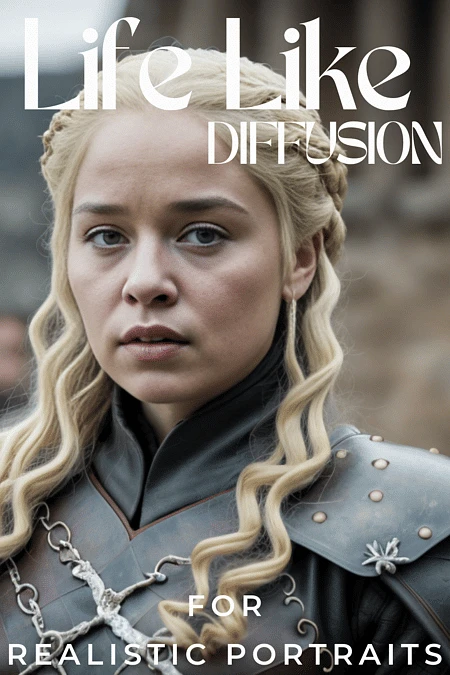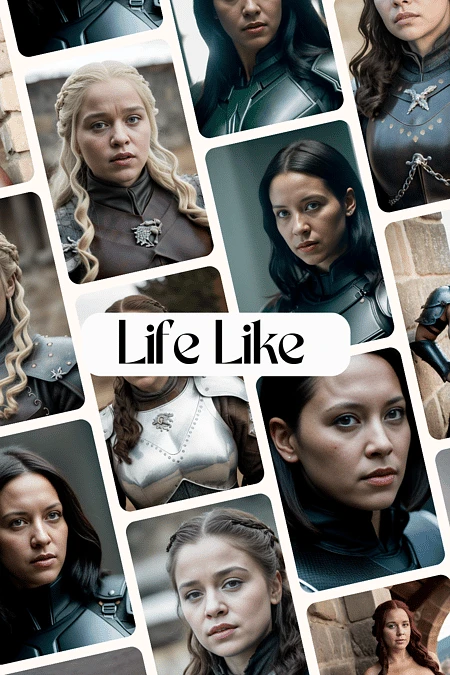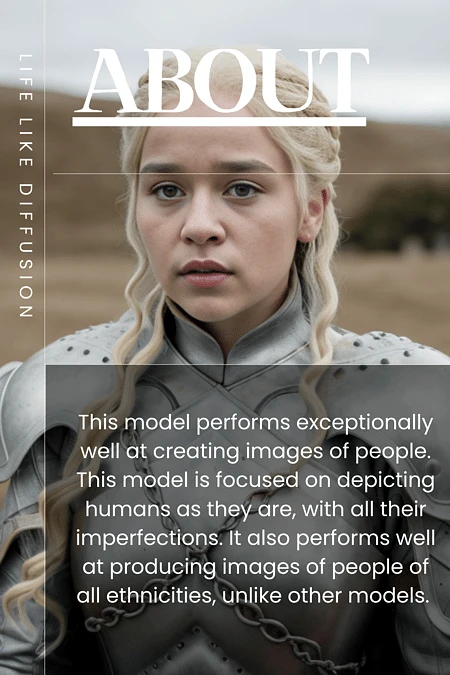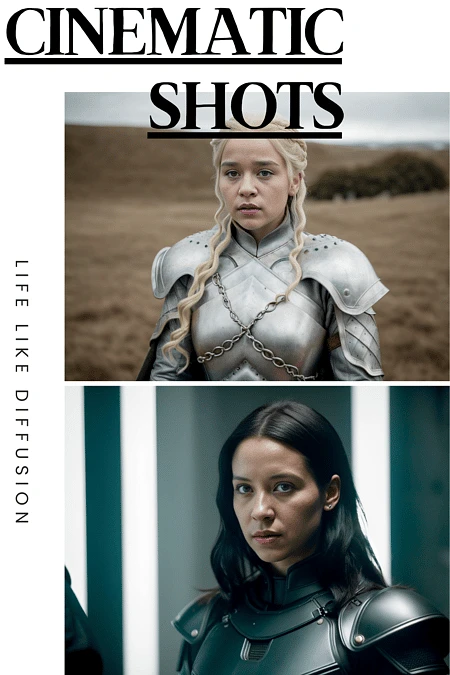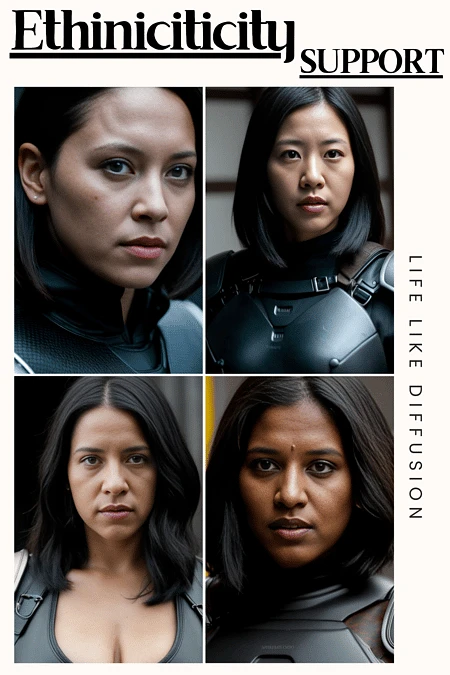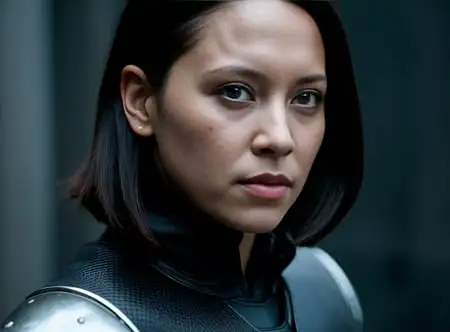
Life Like Diffusion
Life Like Diffusion V2.0This merged model performs exceptionally well at creating images of people. This model is focused on depicting humans as they are, with all their imperfections. It also performs well at producing images of people of all ethnicities, unlike other models.
Have fun, share your creations in comments and give feedback :)
If you are having any issues with this model, Please try the smaller Pruned Version.
This model generally performs much better at higher resolutions. Unconventional resolutions can also lead to better results.
Here is an example Prompt but you don't have to use this, any prompt that emphasis photorealism should perform well with this model
Positive Prompt:
((instagram photo)), ((Full Shot)) full body photo of 28 year old beautiful ((woman superhero costume)) strong girlboss in (( avatar the last airbender movie)) (high detailed skin:1.2) 8k uhd, dslr, soft lighting, high quality, film grain ((amateur photo))
Negative Prompt:
small-pupils, small-eyes, closed-eyes, ugly-eyes, multiple-navel, multiple belly-button, ((lazy-eyes)) (deformed iris, deformed pupils, semi-realistic, cgi, 3d, render, sketch, cartoon, drawing, anime:1.4), text, close up, cropped, out of frame, worst quality, low quality, jpeg artifacts, ugly, duplicate, morbid, mutilated, extra fingers, mutated hands, poorly drawn hands, poorly drawn face, mutation, deformed, blurry, dehydrated, bad anatomy, bad proportions, extra limbs, cloned face, disfigured, gross proportions, malformed limbs, missing arms, missing legs, extra arms, extra legs, fused fingers, too many fingers, long neck, closed-eyes, ugly-eyes, ((lazy-eyes))
Tip :- To improve realism and add more skin texture, try lowering denoising in high res fix between 0.25 - 0.45 instead of 0.7, select upscaler to None or R-ESRGAN 4x+ and upscale by between 1 and 2. This should help you increase the resolutions, reduce the number of artifacts and give you high degree of details and skin texture. Use this calculator to figure out correct resolutions to use https://preyx.github.io/sd-scale-calc/
Sampler - Euler A
30 steps
CFG Scale 7-9
Hi res fix ( none or R-ESRGAN 4x )
0 Hires steps
Denoising Strength between 0.3 - 0.4 (very important to keep this under 0.48 in automatic1111, especially when output resolution is higher)
I also want to make it clear that this particular merged model should not be used for training models that are based on portraits of famous people such as celebrities and public figures. The reason for this is that such usage has the potential to cause controversy and negative impacts within the AI community. Therefore, I kindly request that you refrain from using this model for such purposes.
Here are the models I used in this merge
Thank you very much for your support.
What is Life Like Diffusion?
Life Like Diffusion is a highly specialized Image generation AI Model of type Safetensors / Checkpoint AI Model created by AI community user lutherjonna409. Derived from the powerful Stable Diffusion (SD 1.5) model, Life Like Diffusion has undergone an extensive fine-tuning process, leveraging the power of a dataset consisting of images generated by other AI models or user-contributed data. This fine-tuning process ensures that Life Like Diffusion is capable of generating images that are highly relevant to the specific use-cases it was designed for, such as girl, photorealistic, sexy.
With a rating of 5 and over 12 ratings, Life Like Diffusion is a popular choice among users for generating high-quality images from text prompts.
Can I download Life Like Diffusion?
Yes! You can download the latest version of Life Like Diffusion from here.
How to use Life Like Diffusion?
To use Life Like Diffusion, download the model checkpoint file and set up an UI for running Stable Diffusion models (for example, AUTOMATIC1111). Then, provide the model with a detailed text prompt to generate an image. Experiment with different prompts and settings to achieve the desired results. If this sounds a bit complicated, check out our initial guide to Stable Diffusion – it might be of help. And if you really want to dive deep into AI image generation and understand how set up AUTOMATIC1111 to use Safetensors / Checkpoint AI Models like Life Like Diffusion, check out our crash course in AI image generation.
Popularity
Info
Latest version (Life Like Diffusion V2.0): 2 Files
About this version: Life Like Diffusion V2.0
Reworked Core. Produces Far better realistic portraits
